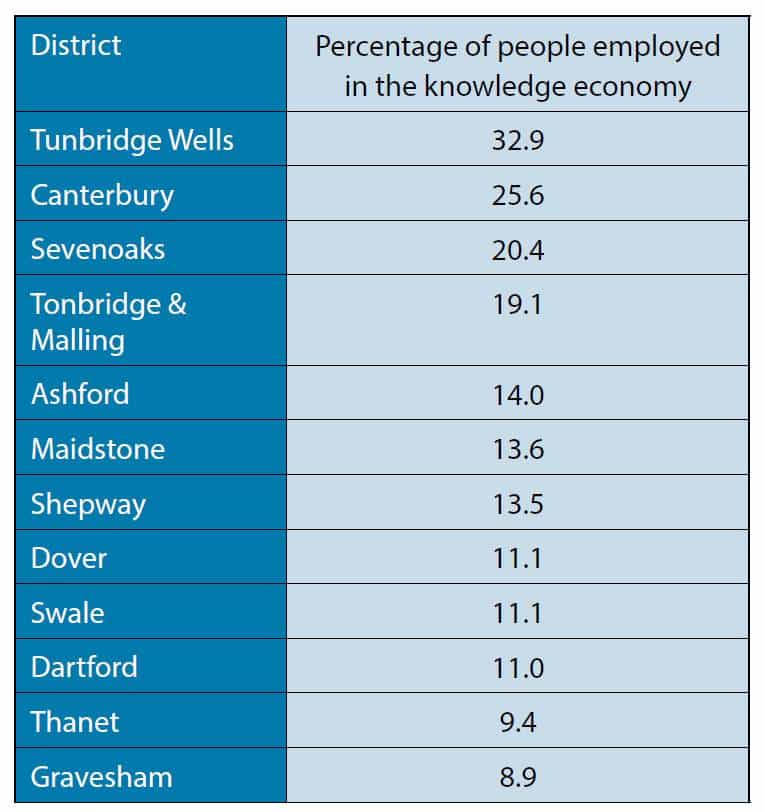A third of all people employed in the borough of Tunbridge Wells work in the ‘knowledge economy’, new figures from the Office for National Statistics have revealed – far exceeding any other district in Kent.
Defined as ‘specific sectors [that] are knowledge intensive in their activity, deal extensively with IT and the distribution or exchange of the information that they hold’, the knowledge economy has been identified by the ONS as: “A key sector to drive future economic growth.”
ONS figures based on data collected this year show 32.9 per cent of people in Tunbridge Wells have a job in this sector.
It marks a considerable increase on 2015, when Tunbridge Wells still led the county with just under a quarter of people in the borough employed in the knowledge economy.
By comparison, the proportion of people employed in this sector in Tonbridge and Sevenoaks stands at 19.1 and 20.4 per cent respectively. The Kent average across all 12 districts is 16.8 per cent.
Barrie Whipp, Chairman of the Tunbridge Wells-based technology firm Crimson Tide, believes it was the town’s ability to attract talented individuals which give it the edge.
He said: “Tunbridge Wells has access to good educational facilities and is relatively wealthy. This, along with good transport links, means it is a town which attracts well-educated, tech-savvy employees for businesses located in the town.”
Mr Whipp added his AIM-listed company has had ‘great success’ in hiring graduates from Kent generally who decide that Tunbridge Wells offers a pleasant environment without the stress of London commuting.
However, he said the future growth of businesses ‘both young and established’ could be ‘stifled’ as an increasing amount of office space continues to be converted into residential usage.
His views were echoed by Andrew Metcalf, a Director of PR specialists Maxim and Kent Invicta Chamber of Commerce, who linked the growth of the town to London’s status as a global city, but also voiced concern over rising land prices.
He said: “Maintaining the jobs locally will be determined by having a strong economy, but also the right business premises for these firms to grow and expand in.
“My concern is that with housing demand continuing to be strong, and therefore land prices remaining high, the opportunity to develop new commercial premises in and around the town of a size and quality that will attract more of these businesses will be limited.
THE KNOWLEDGE ECONOMY EXPLAINED
The figures showing Tunbridge Wells has continued to entrench its position as leading the county in this field come on the back of a report in August which highlighted the town as one of the UK’s top ‘creative hotspots’.
However, it is not just creative businesses which comprise the sector, but any company which tends to specialise in science, IT support, the distribution and exchange of information, research, technical support and consulting.
The ONS states: “In a knowledge economy, labour costs become progressively less important and traditional economic concepts such as scarcity of resources and economies of scale cease to apply.”









